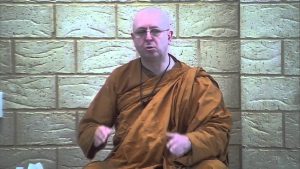Understanding Resentment and Its Impact
An After Skool Cartoon Special!
In his thought-provoking talk, Wayne Dyer, a renowned self-help author and motivational speaker, emphasizes that “there are no justified resentments.” This concept is crucial for anyone looking to lead a fulfilling life free from the burdens of anger and blame. Dyer’s insights, particularly popular among those seeking personal growth, resonate with individuals grappling with past hurts and injustices.
Quick Takeaways:
Wayne Dyer shares an anecdote from his experience with a group, emphasizing the principle that there are no justified resentments in life.
He elaborates on how carrying resentment harms oneself, likening it to the venom from a snake bite that continues to poison long after the initial wound.
Dyer introduces a metaphor from the game show “Who Wants To Be A Millionaire,” equating levels of personal growth with monetary levels in the game. The first level involves taking responsibility for one’s life circumstances without blame.
The second level, akin to the $32,000 question, involves transcending blame entirely, embodying love and compassion even in the face of hate or adversity.
Dyer concludes with the heartwarming “Teddy story,” illustrating how showing love and compassion can transform lives, emphasizing the importance of reaching the highest level of spiritual growth where only love is sent out.
In-Depth Insights:
Why Resentment is Harmful
Resentment, according to Dyer, is like “venom from a snake bite.” The initial bite (or hurt) may not kill, but the venom (or resentment) that lingers can destroy one’s well-being. This metaphor underscores the importance of not allowing negative emotions to fester. Dyer points out that holding onto resentment creates a sense of despair and prevents personal growth.
Steps to Eliminate Resentment
Taking Responsibility: Dyer suggests that the first step to overcoming resentment is to take responsibility for your life’s conditions. This concept is akin to reaching the $1,000 level on the game show “Who Wants to Be a Millionaire.” By eliminating blame, you start to reclaim control over your life.
Embracing Love Over Hate: Moving to a higher level of spiritual growth, similar to the $32,000 level on the game show, involves responding to hate with love. Dyer refers to Patanjali’s teachings, which state that if one becomes steadfast in extending thoughts of non-harm towards others, all living creatures will cease to feel enmity in their presence.
Patanjali’s Influence
Wayne Dyer often references ancient wisdom in his teachings. In this context, he cites Patanjali’s Yoga Sutras, which promote non-harm and love. This ancient text provides a spiritual foundation for Dyer’s message, encouraging a higher state of consciousness and inner peace.
A Real-Life Illustration
To illustrate his point, Dyer shares the touching story of Mrs. Thompson and Teddy Stoddard. Mrs. Thompson, a fifth-grade teacher, initially harbored negative feelings towards Teddy, a withdrawn and struggling student. However, upon learning about Teddy’s difficult home life, Mrs. Thompson changed her approach, offering him compassion and support. This shift not only transformed Teddy’s life but also profoundly impacted Mrs. Thompson, teaching her the true essence of love and teaching.
Wayne Dyer’s Books for Further Reading
For those interested in exploring Wayne Dyer’s philosophies further, his books provide a wealth of knowledge and guidance. Key titles include:
- “Your Erroneous Zones” – This book delves into how to overcome negative thinking patterns and take control of one’s life.
- “The Power of Intention” – Dyer explores the concept of intention and how aligning with one’s true purpose can lead to a fulfilling life.
- “Change Your Thoughts – Change Your Life” – This book offers a modern interpretation of Lao Tzu’s ancient wisdom, encouraging readers to shift their mindset for a better life.
Commonly Asked Questions
What does Wayne Dyer mean by “no justified resentments”?
- Dyer means that holding onto resentment harms oneself more than anyone else. Letting go of these feelings is crucial for personal growth and peace.
How can one eliminate resentment?
- By taking responsibility for one’s own life conditions and responding to negativity with love, as suggested by Dyer and Patanjali’s teachings.
Why is it important to read Wayne Dyer’s books?
- Dyer’s books offer practical advice and spiritual insights that can help readers overcome negative emotions and lead more intentional, fulfilling lives.
By embracing these teachings and integrating them into daily life, individuals can free themselves from the destructive cycle of resentment and cultivate a more loving and peaceful existence. Wayne Dyer’s work, enriched with ancient wisdom and practical advice, remains a guiding light for many on their journey towards self-improvement and inner peace.








